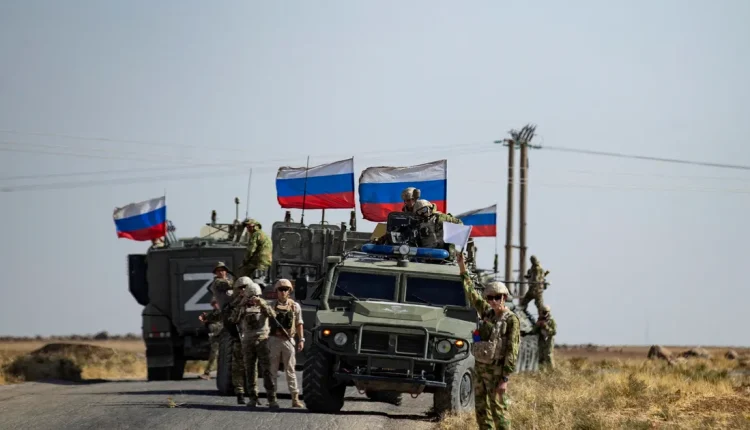Russia Offers Tepid Support as Syrian Regime Faces Strategic Collapse
DAMASCUS, Syria (North Press) – As Syria faces significant territorial losses and a sharp escalation in conflict, Russia’s backing for Damascus appears limited and restrained. A Kremlin insider revealed on Friday that Moscow has no plans for large-scale intervention to rescue the Syrian government amid widespread military withdrawals, as reported by Al-Arabiya/Al-Hadath.
According to Sky News Arabia, Russia has informed Syrian authorities that any potential involvement would be minimal, citing pressing priorities elsewhere.
Syria’s Escalating Crisis
Since November 27, fierce battles have engulfed Syria, particularly between government forces and opposition factions led by Hayat Tahrir al-Sham (HTS) and Turkish-backed groups. These developments have culminated in significant territorial losses for Damascus, including the recent fall of strategic areas like Hama and Deir ez-Zor.
Despite Russia’s longstanding support for President Bashar al-Assad, its current approach seems cautious. Earlier on Friday, Moscow issued an advisory urging all Russian nationals in Syria to leave immediately—a move signaling growing concerns over the deteriorating situation.
Muted Responses and Strategic Hesitation
Russia’s restrained stance reflects a shift in its regional priorities. The Kremlin has conveyed that while it remains an ally of Damascus, its focus lies elsewhere, particularly in addressing domestic challenges and broader geopolitical interests.
This hesitancy contrasts sharply with Moscow’s prior robust military interventions in Syria, such as its decisive air campaign in 2015 that bolstered Assad’s forces and reshaped the conflict’s trajectory.
Analysts suggest that Russia’s reluctance to intervene more aggressively now could stem from multiple factors:
- Strained Resources: Ongoing commitments, such as the Ukraine conflict, may limit Russia’s capacity for expanded engagement in Syria.
- Strategic Calculations: Moscow might be reassessing the long-term feasibility of supporting Assad amid worsening conditions on the ground.
- International Pressure: Increased scrutiny from Western powers could deter overt Russian military action.
Implications for Damascus and the Region
Without substantial Russian support, the Syrian government faces mounting challenges, including diminished territorial control and weakened morale among its forces. The recent withdrawals from Hama, Deir ez-Zor, and other key locations have further emboldened opposition factions, raising questions about the regime’s stability.
Russia’s measured approach also leaves room for other regional actors to exert influence in Syria, potentially complicating the already volatile dynamics in the Middle East.
International Concerns and Calls for Action
The international community is closely monitoring Russia’s evolving role in Syria. Humanitarian organizations have raised alarms about the escalating crisis, urging urgent intervention to prevent further civilian suffering and displacement.
With Damascus on the backfoot, the risk of intensified violence and regional destabilization looms large. How Moscow navigates this critical juncture will likely shape the conflict’s trajectory and the broader geopolitical landscape.

